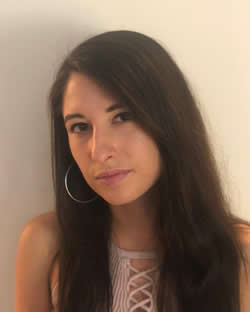|
After I came to understand how one formulates paragraphs in third grade, I started writing stories during math class in secret. Unfortunately, I didn't come to write anything with a heartbeat till the end of graduate school. According to experts, my work was adequate but conventional, aka good job but ain't nobody going to remember it post blinking. In grad school, I took a workshop with the phenomenal Elizabeth Stuckey-French, where I tortured her and my classmates with stories about college burnouts on acid, or incest in an unnamed place in the south. A piece of advice she gave that class, one that seems all too relevant, is that we should be writing about what we're most ashamed of. I took this to mean stories addressing the horrible things we as good people are ashamed we've done, or incidents that embarrass us. Cue stories with the depth of being-at-school-in-your-underwear dreams.
Throughout these ongoing failures, I was also getting mighty frustrated whenever a classmate suggested I write about Cubans or Hialeah. I thought I was more than the place I came from, and I didn't want to be labeled or limited by it, when avoiding it was the very thing limiting me. Perhaps due to my own insecurities, memories of people in college raising brows at Spanish I didn't realize I was using, double-negatives I kept forgetting were only alright in Spanish, or the lack of exposure I had to certain writers, but I'd gotten it in my head that no one would value stories about an immigrant city of misfits or retired misfits, that literary fiction didn't talk like us.
Currently, my people and perverse culture, our hybrid language and history, is all I can seem to write about, and are the stories I think I should be telling. This isn't a claim that writers should stick to their own parts of the world, but that there's a correlation between what we run from and why we've run from it, our personalities and the organic ways we manipulate language when we speak to those who know us best, and stories with a heartbeat.
|
 Laura Roque is the daughter of Cuban political exiles and was raised in Hialeah, Florida. She graduated from the University of Florida in 2014 with a Bachelor of Arts in English, and earned her MFA in Creative Writing at Florida State University in 2017. Her writing addresses Cuban-American identity, doomed relationships of all variations, and the ghosts of loved ones, while attempting to describe and dissect the artfully vulgar immigrant community of Hialeah, the historically conservative individuals forced to flee Cuba, and their Americanized descendants, made contrastingly risqué by the culture they were born into. She was honorably mentioned by Glimmer Train in 2016; this will be her second major publication. Laura currently resides in her hometown with her German shepherd D'Artagnan. She is a lab instructor at Miami Dade College, tutors foster children through Sita Devi, Inc., and is applying to PhD programs. lauraroque.squarespace.com
Laura Roque is the daughter of Cuban political exiles and was raised in Hialeah, Florida. She graduated from the University of Florida in 2014 with a Bachelor of Arts in English, and earned her MFA in Creative Writing at Florida State University in 2017. Her writing addresses Cuban-American identity, doomed relationships of all variations, and the ghosts of loved ones, while attempting to describe and dissect the artfully vulgar immigrant community of Hialeah, the historically conservative individuals forced to flee Cuba, and their Americanized descendants, made contrastingly risqué by the culture they were born into. She was honorably mentioned by Glimmer Train in 2016; this will be her second major publication. Laura currently resides in her hometown with her German shepherd D'Artagnan. She is a lab instructor at Miami Dade College, tutors foster children through Sita Devi, Inc., and is applying to PhD programs. lauraroque.squarespace.com
